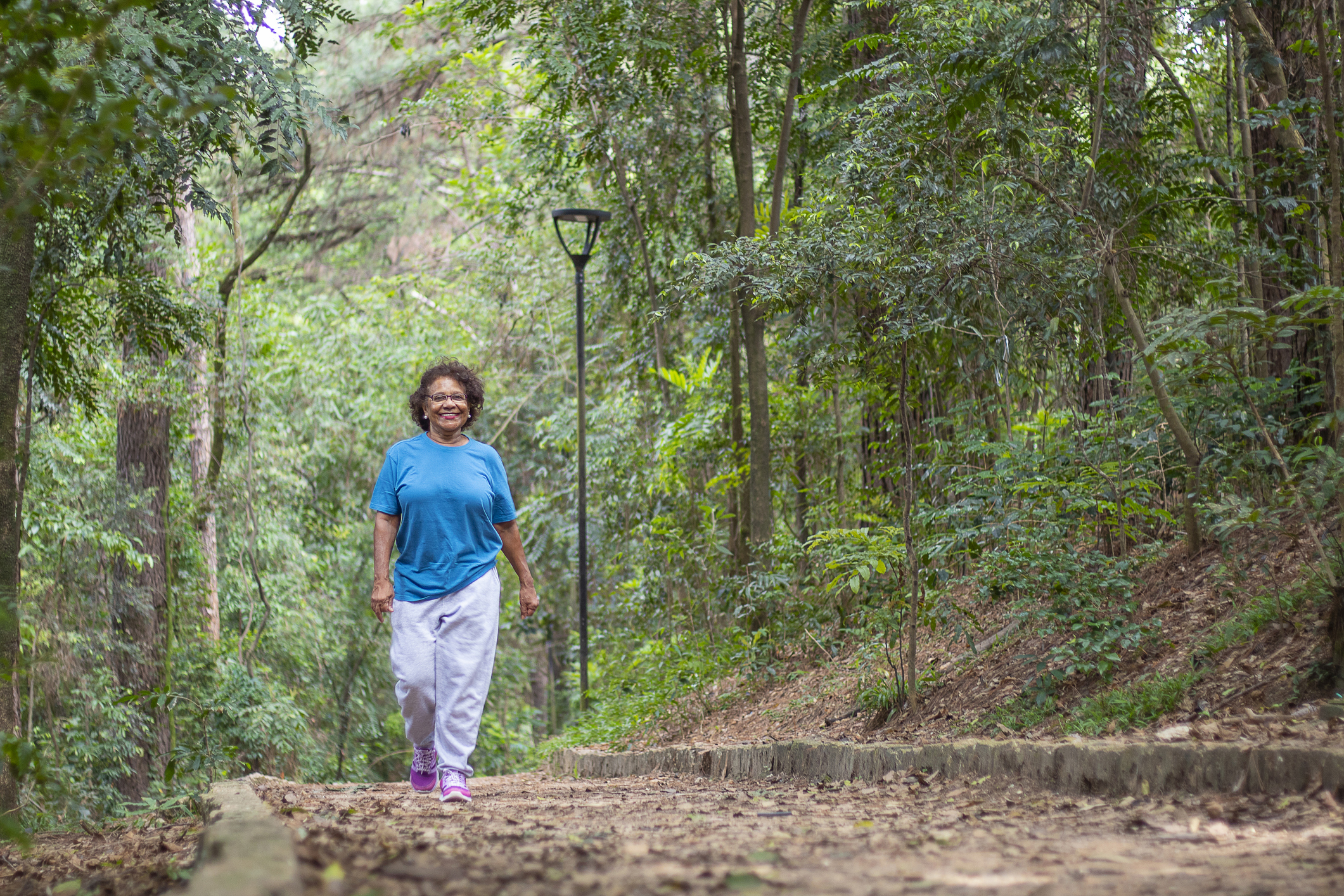Get Easy Health Digest™ in your inbox and don’t miss a thing when you subscribe today. Plus, get the free bonus report, Mother Nature’s Tips, Tricks and Remedies for Cholesterol, Blood Pressure & Blood Sugar as my way of saying welcome to the community!
It takes fewer steps than you’d think to live longer

Walking is one of the safest and easiest ways to stay active. It’s also great for your heart health and can help you meet the American Heart Associations’ fitness guidelines of at least 150 minutes per week of moderate exercise.
But let’s face it…
How many of us actually hit those levels and spend a full 30 minutes, five days a week on our feet and moving?
Probably not many!
But now, according to a brand new study, there’s good news…
It doesn’t take as many steps as you’d think to cut your risk of death by almost a third — and you don’t have to get them all in at once!
How to take your steps: all at once or in short spurts
In fact, the research presented to the American Heart Association themselves found that simply taking more steps each day, either all at once or in short spurts, could help you live longer.
The team of scientists used a wearable step counting device to compare the health effects of uninterrupted bouts of steps (10 minutes or longer) to occasional short spurts, like when you climb the stairs.
And they found it comes down to one thing…
Any type of movement is better than remaining sedentary.
The researchers followed a whopping 16,732 women with an average age of 72 and measured their daily steps and walking patterns for four to seven days.
Then, they divided them into two groups — either the long-time walkers or the short spurt ladies. Here’s what they found:
- Women who took more steps in short spurts lived longer, regardless of how many steps they had in longer, uninterrupted bouts. The benefits leveled off at about 4,500 steps per day in short spurts but women who hit this level had a significantly lower risk of death overall.
- Compared to no daily steps, each initial increase of 1,000 steps per day was associated with a 28 percent decrease in death.
- Women who took more than 2,000 steps per day in uninterrupted bouts reduced their chances of death by a full 32 percent.
Just a little is all it takes to live longer
This means that if you want to lower your risk of death, just adding in a few more steps each day could do the trick.
To monitor your walking, get a step counter to wear regularly and then simply look for opportunities to add in more time on your feet.
Some great ways to get your steps are:
- Park a little further out than you have to when you go shopping
- Do a little extra housework or yard work
- Take the stairs instead of the elevator
- March in place as you brush your teeth
- Each time you go to the mailbox, take a walk around your house (inside or out)
- Walk around the room when you watch television
- Go for an after-dinner stroll
- Set an alarm to remind yourself to get up and take breaks from the computer
Little things can add up to big health benefits and a longer life when you spend more time walking!
Editor’s note: Are you feeling unusually tired? You may think this is normal aging, but the problem could be your master hormone. When it’s not working, your risk of age-related diseases skyrockets. To reset what many call “the trigger for all disease” and live better, longer, click here to discover The Insulin Factor: How to Repair Your Body’s Master Controller and Conquer Chronic Disease!
Sources:
Taking more steps daily may lead to a longer life – EurekAlert!













